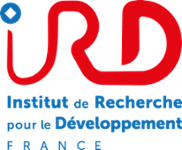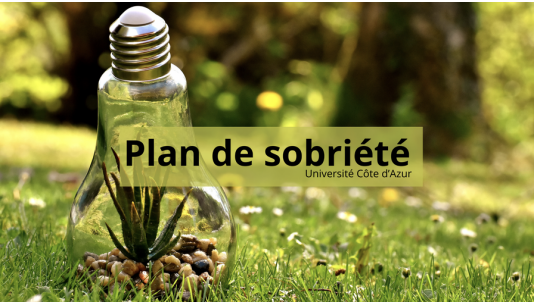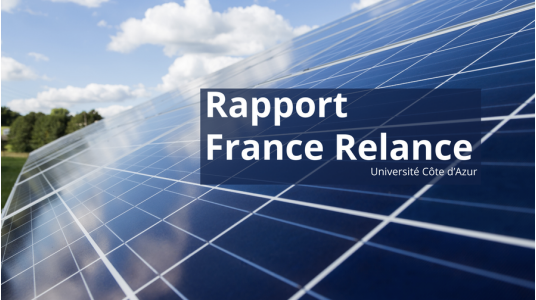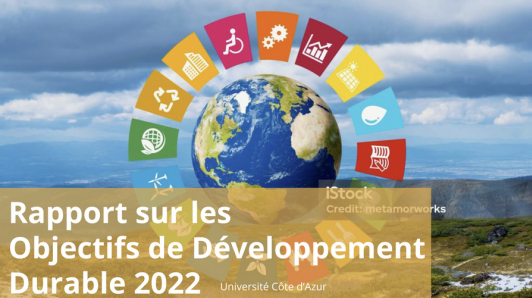Université Côte d'Azur's Sustainable Development Goals
- What are the SDGs (Sustainable Development Goals)?
- What are Université Côte d'Azur's Sustainable Development Goals?
- Report 2022 and documents related to Université Côte d'Azur's Sustainable Development Goals.
Université Côte d'Azur is deploying a number of actions to meet its Sustainable Development Goals (SDGs). The universal program, set for 2030, means that these actions must be sustainable and effective within a relatively short timeframe. Here's what Université Côte d'Azur is already planning to develop, in line with national challenges.
The 2030 Agenda includes 17 Sustainable Development Goals. The aim is to draw up a realistic assessment of the current situation, in order to establish areas for improvement and monitor progress over time. It is also a means of creating a dynamic of ownership by territories, civil society, the private sector and citizens; an ownership that Université Côte d'Azur intends to put into practice. Subsequently, the aim is to build a framework for cooperation, which will enable best practices to be disseminated and anchored within society, here more specifically with regard to the Université Côte d'Azur park. Here are the 17 Sustainable Development Goals (SDGs) in more detail:
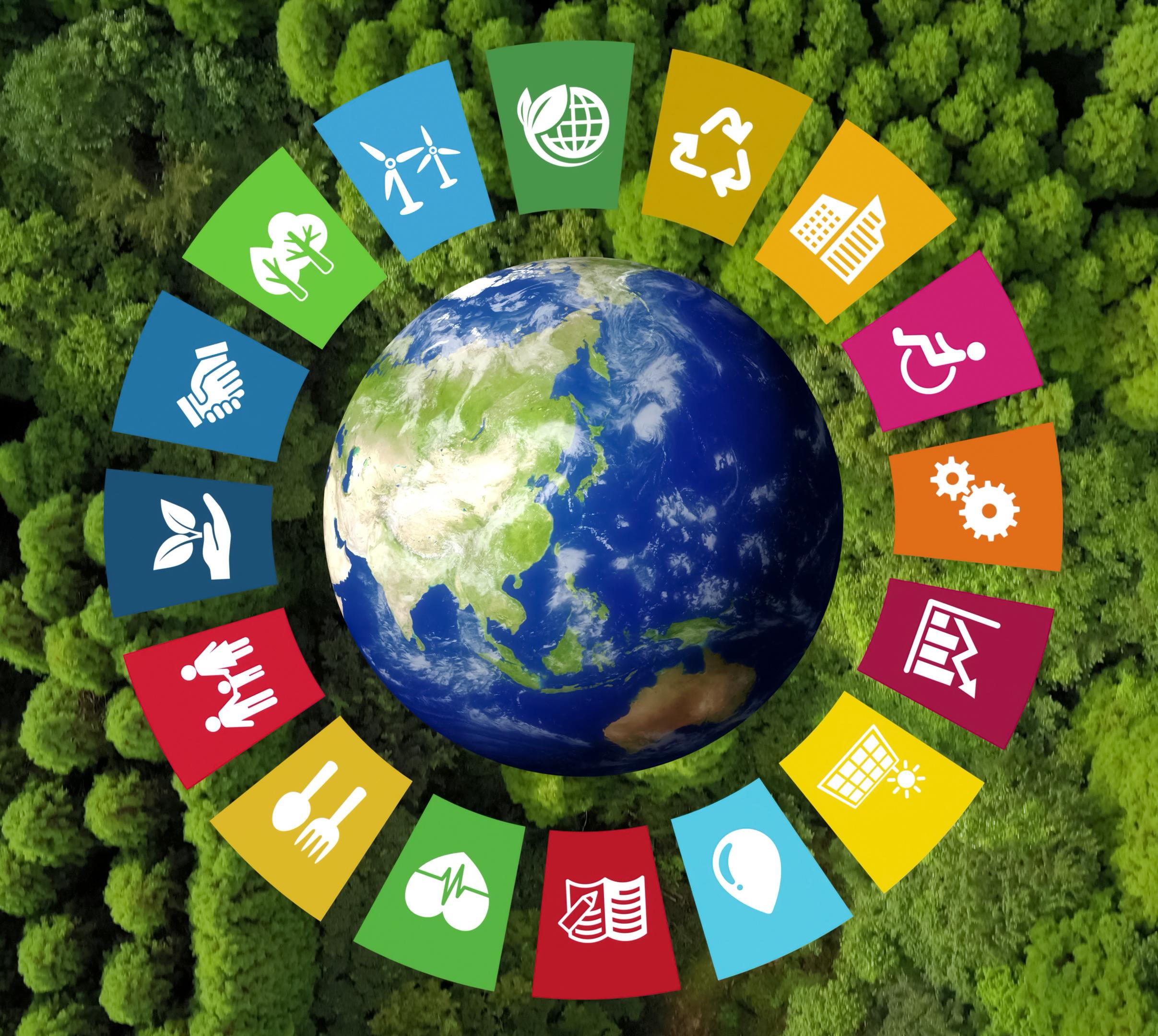
- No poverty.
- Zero hunger.
- Good health and well-being.
- Quality education.
- Gender equality.
- Clean water and sanitation.
- Clean and affordable energy.
- Decent work and economic growth.
- Industry, innovation and infrastructure.
- Reduced inequalities.
- Sustainable cities and communities.
- Sustainable consumption and production.
- Measures to combat climate change.
- Aquatic life.
- Life on land.
- Peace, justice and effective institutions.
- Partnerships to achieve goals.
Backed by its commitment to ethical and academic responsibility, Université Côte d'Azur is committed to implementing a policy in favor of the Sustainable Development Goals (SDGs), and has chosen to focus on 7 founding pillars:
Gender equality
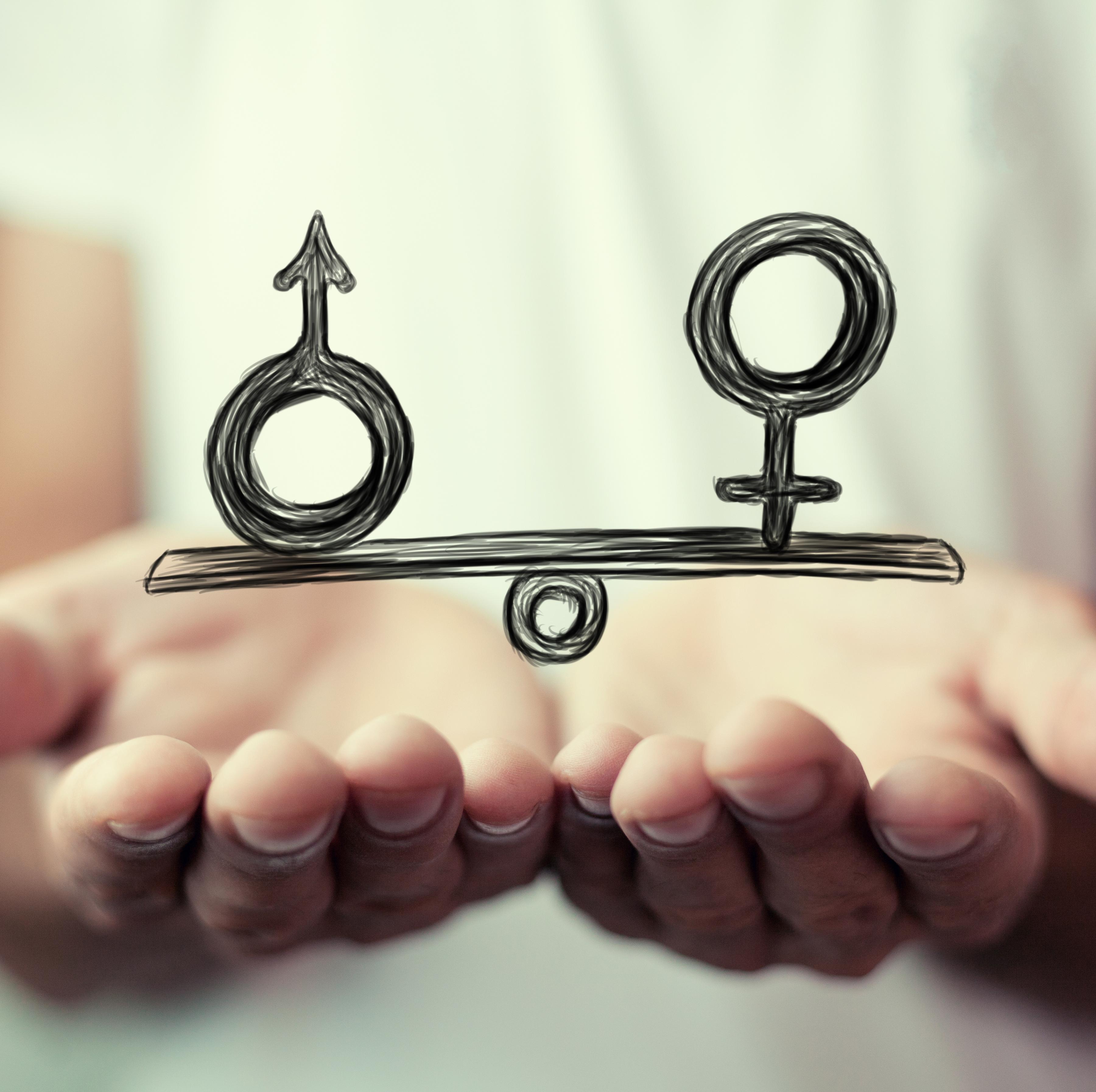
Inclusion

Digital responsibility
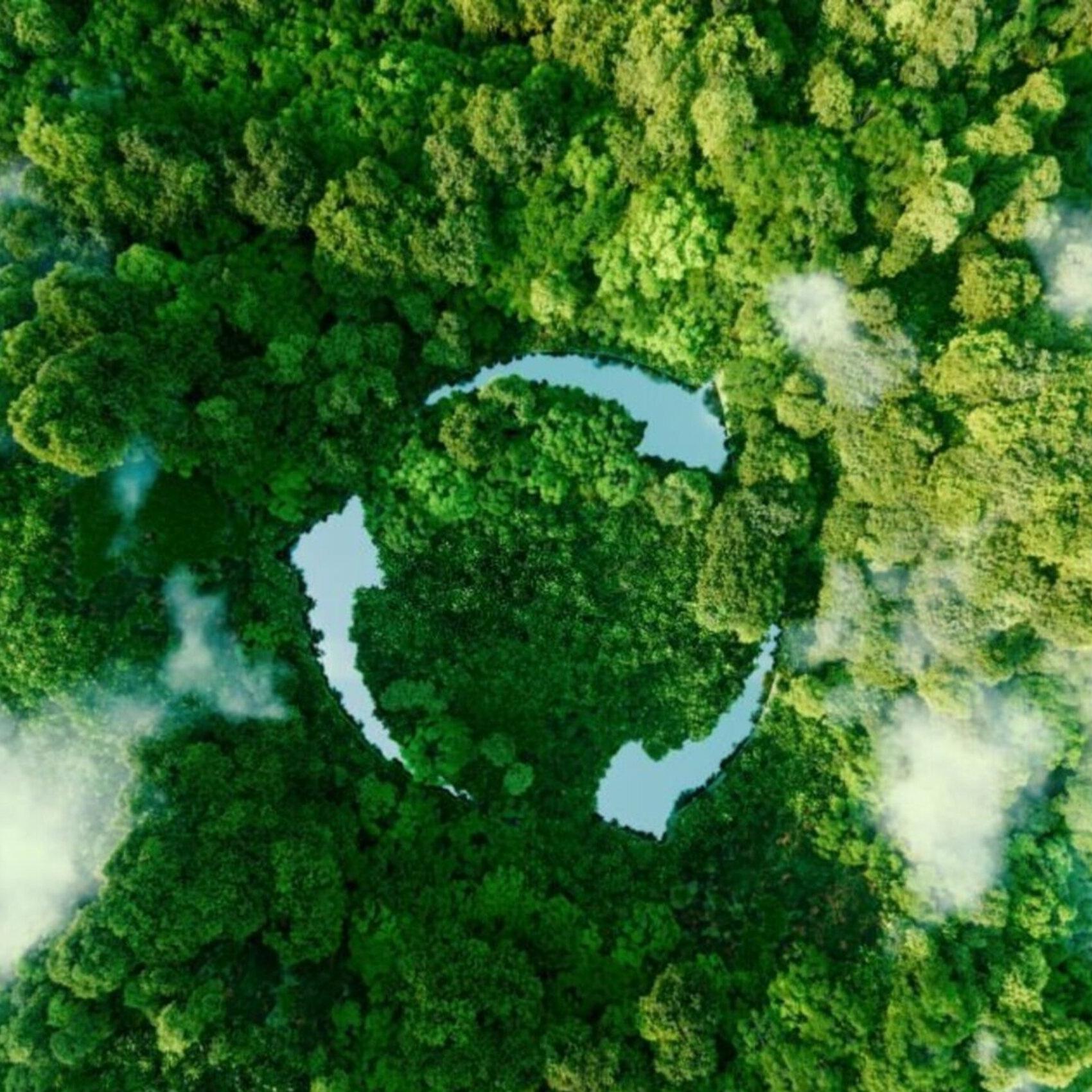
Sustainable real estate

Access to knowledge
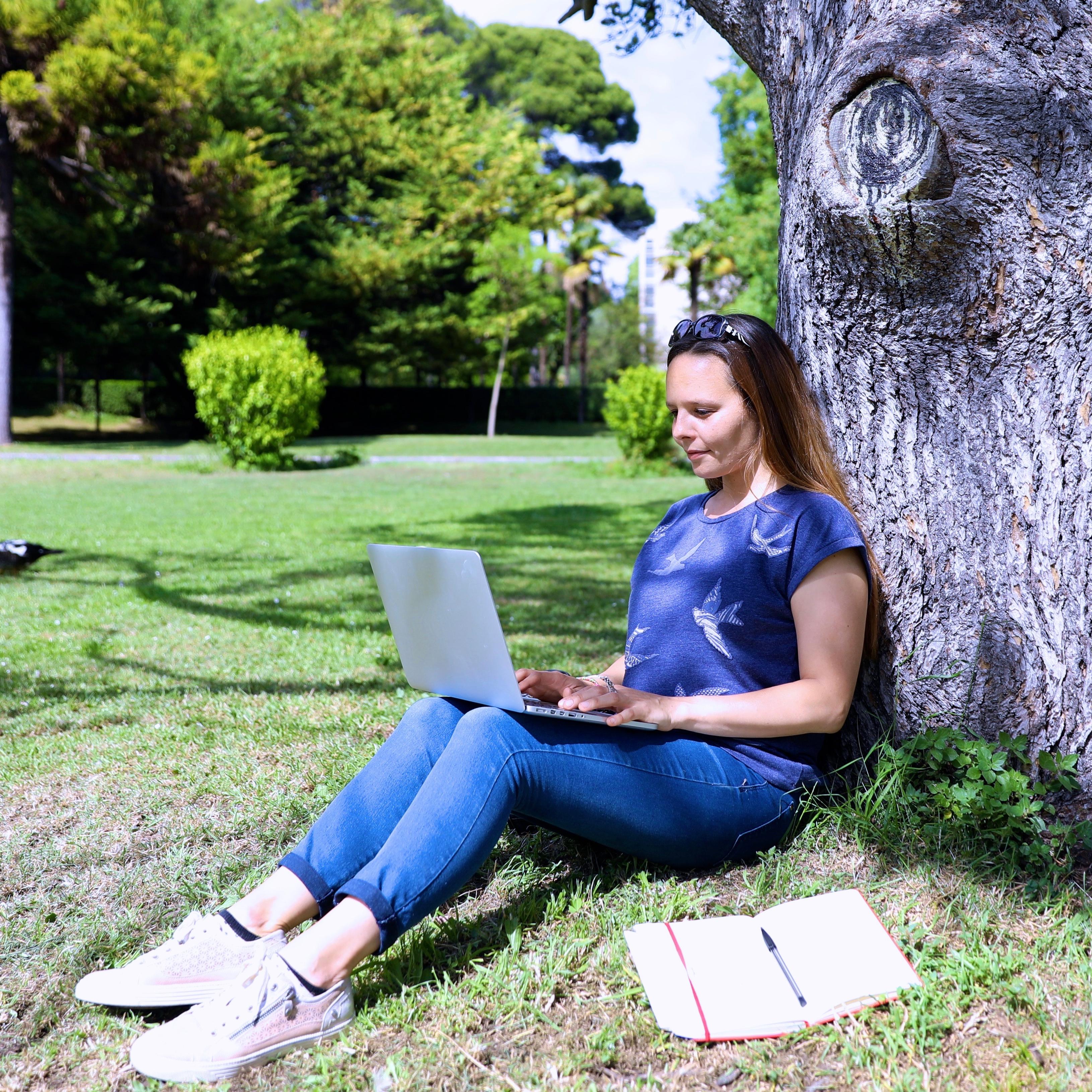
Ecological transformation

University democracy
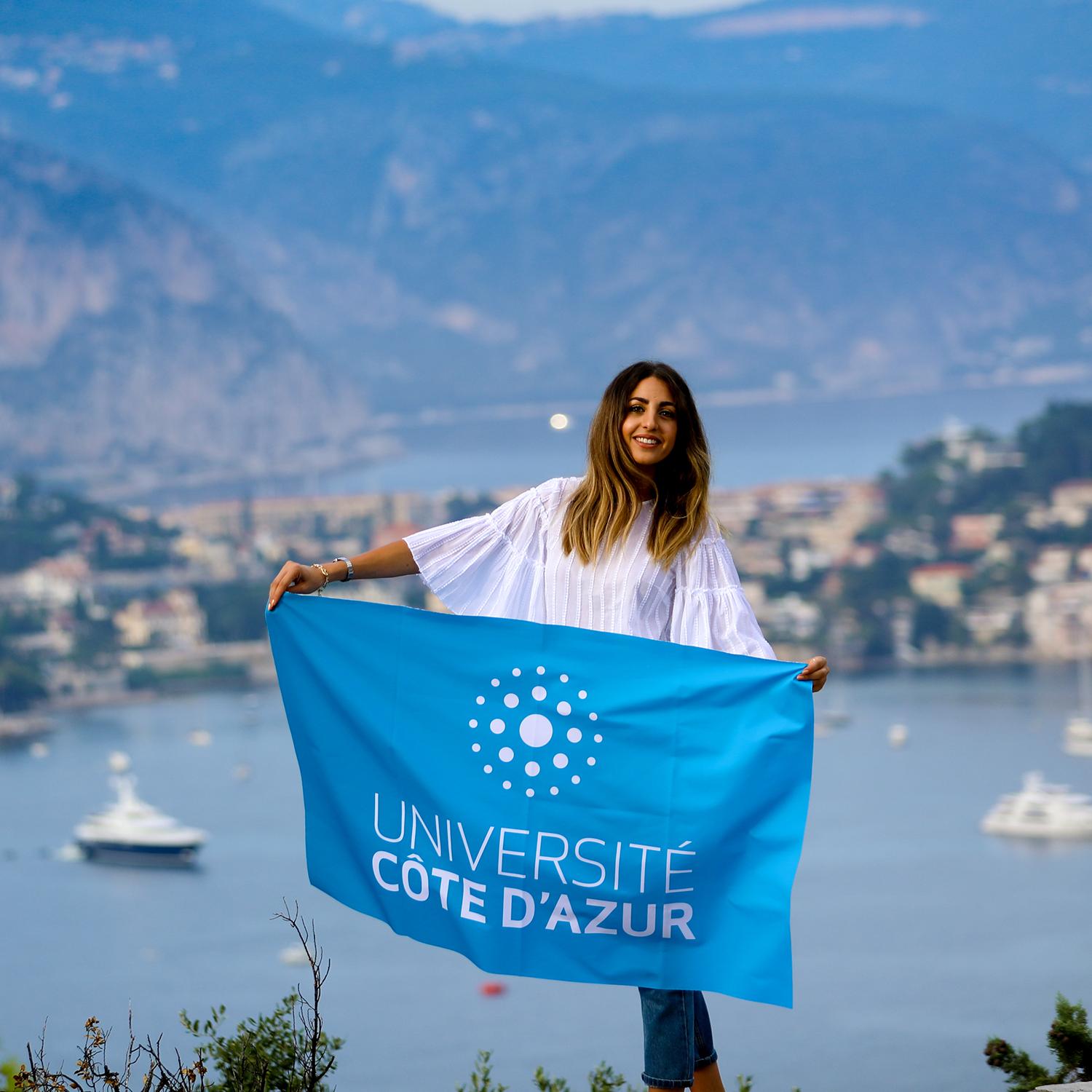
A member of theU7+ Alliance since COP 26 in Glasgow, Université Côted'Azur is keen to implement further actions in line with the United Nations' Sustainable Development Goals (SDGs):
- Structure Université Côte d'Azur's sustainable development policy by creating a dedicated department.
- Modernize our campuses by focusing on energy-efficient building renovation, notably through the France Relance program.
- Commit to the signature and implementation of the Grenoble Accord, including the creation of the COPIL Plan Vert (Green Plan Committee) to ensure environmentally-friendly campus management.
- Create a sustainable mobility network on most campuses, consistent with the actions of local authorities.
- Develop Sustainable Development and Commitment missions and promote them through the eco-responsible campus mission.
FAQ
- What are the 7 pillars of the SDGs?
-
To meet its Sustainable Development Goals (SDGs), Université Côte d'Azur has highlighted 7 major pillars in relation to its fields of action in favor of sustainable development. These are :- Gender equality,
- Inclusion
- Digital responsibility,
- Sustainable real estate,
- Access to knowledge,
- Ecological transformation,
- University democracy.
- What are the 17 SDGs?
-
There are 17 different Sustainable Development Goals (SDGs):
- No poverty.
- Zero hunger.
- Good health and well-being.
- Quality education.
- Gender equality.
- Clean water and sanitation.
- Clean and affordable energy.
- Decent work and economic growth.
- Industry, innovation and infrastructure.
- Reduced inequalities.
- Sustainable cities and communities.
- Sustainable consumption and production.
- Measures to combat climate change.
- Aquatic life.
- Life on land.
- Peace, justice and effective institutions.
- Partnerships to achieve the goals.
- What is the purpose of the SDGs?
-
On September 25, 2015, the United Nations General Assembly endorsed the 2030 Agenda of Sustainable Development Goals, gathering the support of 193 nations. This program sets out 17 Sustainable Development Goals (SDGs) to be achieved by 2030 with the aim of eradicating poverty, preserving the planet and ensuring universal prosperity.
- What is the Agenda 2030?
-
The Agenda 2030 represents a global initiative in support of the Sustainable Development Goals, aimed at transforming our planet by eliminating poverty and disparity, while orchestrating an ecological and inclusive transition by 2030.
- Who can take action to achieve the 17 SDGs?
-
The 17 Sustainable Development Goals are closely interlinked, internationally applicable, and require collective implementation by all stakeholders.all stakeholders, such as governments, the private sector, civil society, the United Nations system and other partners, as part of a concerted collaboration.









